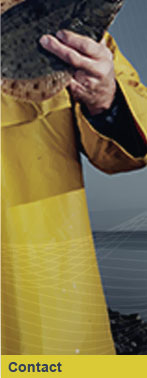Outline
Knowledge gaps addressed:
The project addresses knowledge gaps of various kinds. South Asian policymakers and academics lack ecological, socio-economic and institutional information with regard to the Palk Bay, as well as a comprehensive understanding of the issues at hand. The project will be able to fill in some of these gaps (see Activity 2), but will also – e.g. with regard to marine ecosystem studies - have a signalling function. The knowledge gaps to be filled in for South Africa focus particularly on updating socio-economic data on traditional fishers excluded from access to resources in selected coastal communities, understanding customary practices and institutions relevant to these small-scale fisheries and gaining knowledge with respect to marine resource opportunities and constraints in order to identify research requirements for improving allocation and management decisions.
The project will adapt and apply a recent empirically developed framework and methodology on social wellbeing (Gough and McGregor 2007, see www.welldev.org.uk) to ascertain some of the impacts of current governance arrangements on the wellbeing of small-scale fishers in South Africa (activity 3) with scope to broaden investigations to a South Asian context in years 3-5. This is particularly pertinent in the current project where impacts of governance must be understood from the context of exclusion and conflict. Many ‘excluded’ fishers may have adapted to meet their basic needs, but retain aspirations for a future in fisheries that is driven by social memory, a sense of cultural loss, and experience of injustice through relationships with others (including governance arrangements), all of which may influence perceived quality of life. Understanding these components is critical if conflict resolution mechanisms are to support a longer process of reconciliation and peace.
Research Questions:
What lessons do the two case studies offer with regard to (a) the understanding of processes of and tools employed in negotiation and struggle over natural resources in a context of legal pluralism and (b) the development of policy and new governance frameworks for the resolution of core fishery conflicts and the long term sustainability of fishery systems involving small scale fishing groups?
Methods:
The team consists of human geographers, environmental and social scientists, marine biologists, economists, anthropologists, development practitioners and experts in policy processes, all of whom have prior experience of working in an interdisciplinary setting. Most of them have previously worked together in research projects. The project will require a varying set of disciplinary and transdisciplinary inputs that are coordinated and instigated by the Consortium, according to the research plan (see process management strategy below). In order to promote the successful cross-fertilization of research results between (and within) the two regions, the project arranges for regular inter-regional workshops and the exchange of researchers and staff. Research methodologies include, inter alia, literature review, surveys, participatory observation, interviews, scoping studies, and triangulation.
Novel / Original Aspects:
This project adds to the effort “to generate a deeper understanding of the ways different bodies of law in plural legal orders are interrelated” (Benda-Beckmann 2006) and to conceptualizing the challenges of governance of natural resources in a context of legal pluralism and conflict (Jentoft et al. 2009). Focusing on the negotiation of fishing rights in a context of previous exclusion, it develops novel negotiating and monitoring strategies and documents institution-building processes which are useful for other settings. The project’s adaptation of a wellbeing framework and methodology to analyse relationships between fisher wellbeing, fisheries governance and implications for conflict resolution is highly innovative and will produce a new set of methodological tools that will be trialed within the first two years of the project.

Centre for Maritime Research
Plantage Muidergracht 14-16
NL-1018 TV Amsterdam
Phone: +31 20 5254185
Fax: +31 20 5254051
Contact Form
